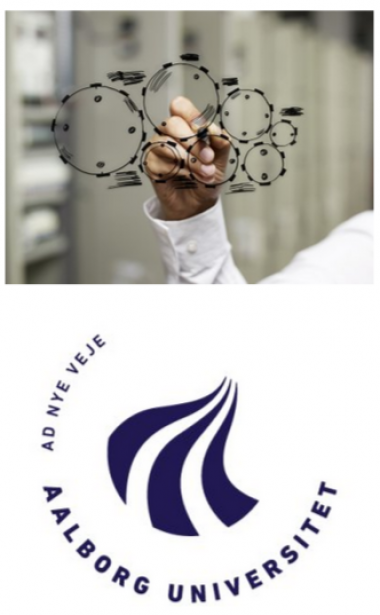Aalborg University has since its establishment invested heavily in creating strong linkages with local industry and with other institutions and actors in the innovation system. A particular innovative feature of entrepreneurship at Aalborg University is the emphasis on interdisciplinarity and creative problem solving in its teaching and learning processes. This offers students significant potential to engage with society, to produce new solutions and approach problems and situations in new ways. To promote creativity Aalborg University has established research groups for unlimited knowledge application. These groups make strong linkages with external partners and make creativity teaching across faculties and department.
Innovative Features
- HEI - Business/External Relationships for Knowledge Exchange
- Entrepreneurship Development in Teaching and Learning
Rooted in the university’s philosophy of problem-based inter-disciplinary learning, the Research Group for Unlimited Knowledge Application at Aalborg University helps prepare students for a career after their studies as entrepreneurial and creative employees, researchers or entrepreneurs.
The research group is part of the effort to stimulate entrepreneurial behaviour specifically focusing on creativity and making an impact. It focuses in particular on unleashing the creative potential of individuals. The research group uses four basic principle to understand how creative behaviour and thinking actually occurs in people:
- Same focus at the same time - one focus at a time (parallel thinking)
- Focusing on the task and nothing else (task focus)
- No experience of judgment (no-experienced judgment)
- Use of all knowledge available (horizontal thinking)
The research has led to three accepted concepts, which are used in practice to stimulate the creative potential of individuals and teams. The first is called “the Creative Platform” and is an approach taken to teaching creativity and the creative process. The second is called “3D didactic” which aims to develop new entrepreneurial behaviour in individuals and teams by designing teaching in a specific way. 3D didactic uses the four principles in a practical way to design and perform teaching in which students/pupils will become more creative and entrepreneurial. The third is called “Training Programme for New Thinking” which is a mechanism for developing personal thinking and behaviour as well as new organisational cultures through creativity exercises.
The Research Group for Unlimited Knowledge Application have designed and perform creativity courses across the university as well as a cross-disciplinary semester called Creative Genius. It also offers shorter courses which are also available for external partners. The ‘Creative Genius’ semester is taught in English, have students from several countries and all faculties. The main focus of the semester is it fosters new thinking, originality and making an impact in the students own discipline. The semester runs from early September to late January and it consists of four modules including three courses and portfolio development:
- Creative Method (module 1) is organised as a course on creative processes, tools and techniques. This module is taught on both a practical and a theoretical level.
- Impact (module 2) is organised as a course on how to make an impact in a specific field for economic, social, sustainability or other purposes, or a combination of these.
- Creation of Creative Genius (module 3) is a course that includes both practical training and theoretical introduction to the development of creativity. The training part consists of exercises that develop one’s level of creativity, new thinking and originality both in a short- and a long-term perspective, while the theoretical part focuses primarily on an introduction of and discussion embodied and reflective development towards become a creative genius.
- Portfolio (module 4) builds on the previous modules, and it aims at students developing a portfolio. The portfolio should demonstrate a specific idea that has formed the basis of the work and the student’s understanding of creativity including its application to add value to entrepreneurial processes. In addition, the portfolio should also demonstrate the individuals’ own development as “a creative genius”
At the ‘Creative Genius’ semester students are expected to be both a student and a teacher. After an introductory period where students get familiar with the study environment, students take turns in facilitating the morni



